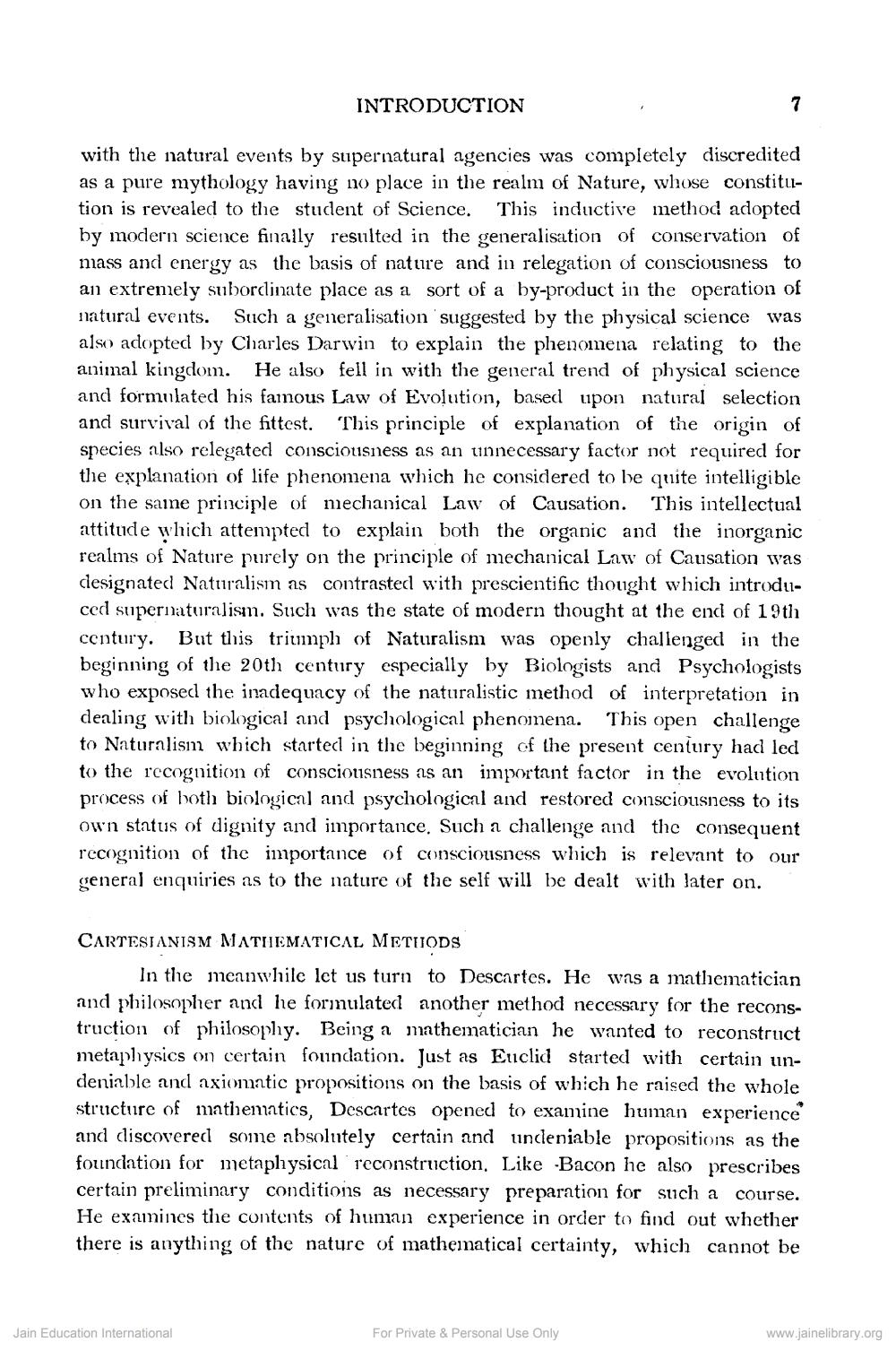________________
INTRODUCTION
with the natural events by supernatural agencies was completely discredited as a pure mythology having no place in the realm of Nature, whose constitution is revealed to the student of Science. This inductive method adopted by modern science finally resulted in the generalisation of conservation of mass and energy as the basis of nature and in relegation of consciousness to an extremely suborclinate place as a sort of a by-product in the operation of natural events. Such a generalisation suggested by the physical science was also adopted by Charles Darwin to explain the phenomena relating to the animal kingdom. He also fell in with the general trend of physical science and formulated his famous Law of Evolution, based upon natural selection and survival of the fittest. This principle of explanation of the origin of species also relegated consciousness as an unnecessary factor not required for the explanation of life phenomena which he considered to be quite intelligible on the same principle of mechanical Law of Causation. This intellectual attitude which attempted to explain both the organic and the inorganic realms of Nature purely on the principle of mechanical Law of Causation was designated Naturalisin as contrasted with prescientific thought which introduced supernaturalism. Such was the state of modern thought at the end of 19th century. But this triumph of Naturalism was openly challenged in the beginning of the 20th century especially by Biologists and Psychologists who exposed the inadequacy of the naturalistic method of interpretation in dealing with biological and psychological phenomena. This open challenge to Naturalism which started in the beginning of the present century had led to the recognition of consciousness as an important factor in the evolution process of both biological and psychological and restored consciousness to its own status of dignity and importance. Such a challenge and the consequent recognition of the importance of consciousness which is relevant to our general enquiries as to the nature of the self will be dealt with later on.
CARTESIANISM MATHEMATICAL METUODS
In the meanwhile let us turn to Descartes. He was a mathematician and philosopher and he formulated another method necessary for the reconstruction of philosophy. Being a mathematician he wanted to reconstruct metaphysics on certain foundation. Just as Euclid started with certain undeniable and axiomatic propositions on the basis of which he raised the whole structure of mathematics, Descartes opened to examine human experience and discovered some absolutely certain and uncleniable propositions as the foundation for metaphysical reconstruction. Like Bacon he also prescribes certain preliminary conditions as necessary preparation for such a course. He examines the contents of human experience in order to find out whether there is anything of the nature of mathematical certainty, which cannot be
Jain Education International
For Private & Personal Use Only
www.jainelibrary.org




